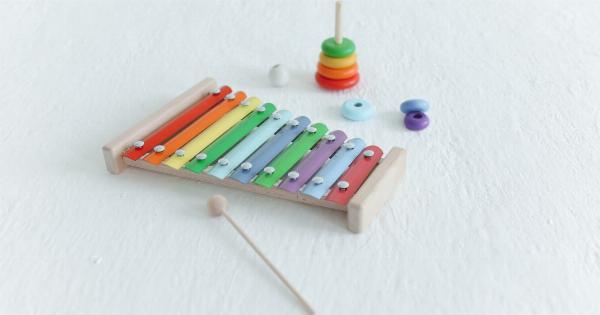The power of music is undeniable. It has the ability to evoke emotions, trigger memories, and even improve cognitive function. And while music is often enjoyed by people of all ages, its impact on infant brain development is particularly significant.
Research has shown that exposing infants to music can have numerous positive effects on their brain function and overall development. In this article, we will explore these effects in detail.
1. Enhances Language Skills
Listening to music from a young age can significantly enhance an infant’s language skills.
The rhythmic patterns and melodic contours in music help infants develop a sense of rhythm, which is crucial for various aspects of language development, such as the ability to recognize and replicate patterns of speech. A study conducted by researchers at the University of Washington found that exposure to rhythmic music in infancy improved speech processing skills later in life.
2. Boosts Cognitive Abilities
Music has the power to stimulate various areas of the brain simultaneously, leading to improved cognitive abilities in infants.
Research has indicated that exposure to music can enhance cognitive skills such as problem-solving, critical thinking, and spatial-temporal skills. A study published in the journal Pediatrics found that infants who underwent music training demonstrated improved cognitive abilities compared to those who did not receive musical stimulation.
3. Enhances Emotional Development
Music has a profound impact on our emotions, and this effect is particularly pronounced in infants. When infants listen to music, their brains release dopamine, a neurotransmitter associated with pleasure and reward.
This release of dopamine helps foster positive emotions and contributes to the emotional development of the infant. Additionally, music with calming melodies can help infants relax and regulate their emotions, leading to a more balanced emotional state.
4. Improves Motor Skills
Moving and grooving to music not only brings joy to infants but also improves their motor skills. Dancing and interacting with music help infants develop coordination, balance, and overall motor control.
The rhythmic patterns in music act as cues for movement, allowing infants to practice and refine their motor skills while having fun. A study conducted at McMaster University revealed that infants exposed to music made more rhythmic movements and showed better motor coordination compared to infants who were not exposed to music.
5. Facilitates Memory and Learning
Music has the incredible ability to enhance memory and facilitate learning in infants. The repetition and patterns in music aid in memory formation and retrieval, which is crucial for early learning.
Researchers have found that infants who were exposed to music had better memory recall skills, both in terms of auditory stimuli and visual cues. This improved memory and learning capacity lay a strong foundation for future academic success.
6. Encourages Social Interaction
Music serves as a powerful social connector, even for infants. Singing and dancing together to music provide an opportunity for social interaction and bonding between infants and their caregivers.
Participating in musical activities with others helps infants develop crucial social skills, such as turn-taking, cooperation, and communication. A study published in the journal Pediatrics demonstrated that infants engaged in musical activities showed enhanced social behaviors compared to those who did not engage in such activities.
7. Stimulates Brain Development
Exposing infants to music stimulates brain development in various ways. The intricate melodies, harmonies, and rhythms in music activate multiple areas of the brain, fostering neural connections and strengthening communication between brain regions.
This stimulation promotes the growth and development of the infant’s brain, leading to improved overall cognitive functioning. A study published in the journal Neuroscience Letters found that musically trained infants had enhanced neural responses compared to their non-musically trained counterparts.
8. Improves Sleep Patterns
Music has a soothing effect on infants, making it an effective tool for improving sleep patterns. The calming melodies and gentle rhythms can help lull infants into a relaxed state, making it easier for them to fall asleep and experience restful sleep.
A study published in the Journal of Advanced Nursing found that playing soft music to infants before bedtime resulted in faster sleep onset and longer sleep durations.
9. Cultivates Cultural Awareness
Introducing infants to music from different cultures and traditions can help cultivate cultural awareness and appreciation from an early age.
Exposing infants to a variety of musical genres and styles broadens their musical horizons and exposes them to diverse cultural practices. This exposure fosters an appreciation and respect for cultural diversity, leading to well-rounded individuals who are more open-minded and accepting of different traditions and customs.
10. Enhances Overall Well-being
Above all, music has a positive impact on an infant’s overall well-being. The pleasurable and engaging experiences associated with music contribute to the development of a child’s self-esteem and emotional stability.
Music provides a source of joy and comfort, relieving stress and promoting a sense of relaxation. Numerous studies have shown that infants who are regularly exposed to music exhibit higher levels of happiness and contentment.
In conclusion, the positive effects of music on infant brain function are significant.
From enhancing language skills and boosting cognitive abilities to stimulating brain development and improving overall well-being, music plays a crucial role in shaping an infant’s development. By incorporating music into an infant’s daily routine, caregivers can provide a stimulating and enriching environment that nurtures and supports their growing minds.































